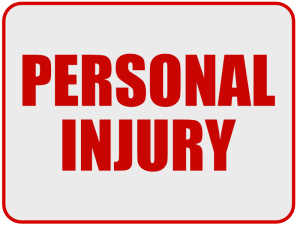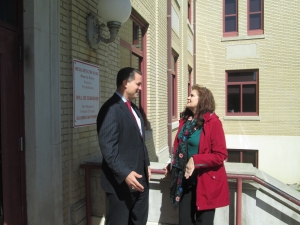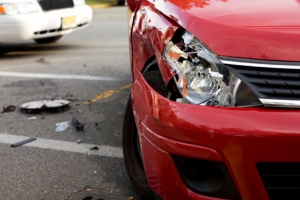Bill Connor

FINDING ALL POSSIBLE INSURANCE COVERAGE AFTER PERSONAL INJURY
Call The Bill Connor Law Firm Today!
Personal Injury Lawyer In South Carolina What is a personal injury attorney? Obligations of a Personal Injury Lawyer? Benefits of Having a Lawyer Claim’s Value Legal Process Case Success It's important to find a reliable, experienced, knowledgeable attorney that will look out for your best interests.
A personal injury is an injury that is the fault of another person or business. There are many different classifications of a personal injury, for example, slip and falls when on another person's property or business, automobile accidents, and medical malpractices can all be listed as a personal injury.
These laws exist to compensate the injured person and help make sure that future wrongdoings are avoided.
A personal injury lawyer a person who legally represents plaintiffs that are claiming physical or emotional injury as the result of negligence or disregard of another person or party.
The lawyer assists the plaintiff and helps them acquire compensation for their suffering or loss as a result of an injury. If your suffering has resulted in your inability to work, perform normal activities, left you in pain, with medical expenses, or caused you psychological distress, and left you with legal costs, your attorney can assist you in getting the fair compensation you need to cover your losses.
Your Lawyer will investigate your injury claim, collect evidence and research case laws. The primary purpose of your lawyer is to get you the reasonable compensation required for your loss and suffering. In some instances your attorney may be able to get the other party to settle, in this case, you would not have to take the other party or business to trial.
Having an attorney can help protect you from being taken advantage of and ensure you are treated fairly.
Most people wonder if having a personal injury attorney is needed, and the answer to that is that it can be impossible to handle a case on your own if you do not have the proper legal knowledge. When the stakes are high, a personal injury lawyer is crucial for the following purposes:
What is your claim worth?
You can't accurately determine the value of your claims. But you can get a reasonable estimate from an attorney.
An experienced lawyer South Carolina knows the legal procedures and proper time for filing a personal injury lawsuit. If you decide to handle the case on your own, you may make a mistake that can have your case thrown out.
The odds are that the defendant, particularly businesses and insurance companies will hire a qualified, experienced attorney to defend them against your allegations. If you choose to fight this legal team on your own, you may find yourself outmatched and lose. Letting a knowledgeable lawyer handle the opposing party is the best approach to ensure your best outcome.
If you or a loved one have endured a personal injury due to an accident and need to make a legal claim, obtaining a personal lawyer in South Carolina is crucial.
At The Bill Connor Law Firm, we will do our best to make sure you receive the compensation you deserve. Call us today to see how we can assist you.
The Story.
James Stephen previously served with Bill Connor as interpreter to American forces during combat operations in Helmand, Afghanistan. After Bill and James served together, James left Afghanistan to become a missionary in New Delhi, India.
AT THE AGE OF 18 I HAD THIS EXPERIENCE.
I was five blocks away and a sister came running towards me saying, “Omar, Omar, Jesus loves you. Don’t leave the path of God. “I turned around, looked at her and said, “What are you doing here? Are you crazy or what? Come on, I’m going to take you back.” As I was taking her back she started to tell me, “I know what it’s like because of what you look like and where you come from… but don’t leave the path of God. Jesus loves you.” She told me that she too also had been on the streets taking DRUGS and in GANGS and in and out of JAIL.. “But don’t leave the path of God. Jesus loves you..” As I was walking her back to the Church she had her baby held in her arms and she said, “I am going to pray for you.” As she started to pray I was walking on the side of the street and she on the sidewalk. I was looking down and listening to her prayer and a few seconds later she suddenly grabbed me as a bus whizzed by. The bus almost ran me over. I tried thanking her but she responded, “It wasn’t me. It was Jesus.” I tried to hug her and thank her again, but she said “It wasn’t me. It was Jesus.” I sat down on the floor and had tears in my eyes and thought to myself, “I should of have been SMASHED or thrown fifty feet in the air. I SHOULD BE IN HELL RIGHT NOW.” My mind was running fast over what just happened. Later I was reading a passage from the Bible which says, “My brothers, if one of you should wander from the truth and someone should bring him back, remember this: Whoever turns a sinner from the error of his way will save him from death and cover over a multitude of sins… (James 5:19-20). And that’s me. The verse applies to me.
I was sitting in Church one day as I was listening to a sister who came to the pulpit. She started to say that GANG MEMBERS wanted to join her two sons into their gangs. I had just joined the service and I looked around and noticed everyone wearing suits and ties but as for me I had a bald head and big pants and tattoos across my neck. I stood up and left the congregation because I felt out of place.

James Stephens.
Bibles In India.
The Bill Connor Law Firm supports James in his efforts to bring Bibles to people in India.
THE
MISSION.
With an open Heart, to spread the gospel of Jesus Christ

~ Attorney Bill Connor, The Bill Connor Law Firm ~
"Beyond resources, the law firm team regularly prays for James and all his fellow missionaries. They are making a huge difference for God's Kingdom in bringing the light of the Gospel."
A message of hope.
"Greetings to you all in the Precious Name of our Lord Jesus Christ and may the grace of God be with you all Amen. -James Stephens-
Hi,
I'm James Stephen living in India for the last 10 year's sharing the love of Jesus to the people of Hindustan it is an amazing culture people place and a historic place from ancient people's of the past to a first world country. I'm here doing full-time ministry and I am without family or job. Serving people, providing Bibles and tracks to new families who have usually never been to church or have any Christian background. The support money helps me to travel and distribute the Bible's and track's as well as things for Church like supplies for our children's Sunday school and instruments for worship. We also buy books to teach and a few meals too. By faith and grace of God, we are doing it!"
CALL NOW! 803-937-5571















